From smart robots to AI-powered control systems, industrial automation is defining the next era of production. Global leaders like Siemens, ABB, Rockwell Automation, Schneider Electric, and Honeywell are reshaping how factories operate — combining digital intelligence with physical precision. Alongside emerging innovators such as Standard Bots, Emerson, Mitsubishi Electric, FANUC, and Yokogawa Electric, they’re building the foundation of Industry 5.0 — one that merges human creativity with machine efficiency.
These companies stand apart through their global reach, innovation velocity, and real-world impact — transforming industrial operations with measurable performance gains, not just futuristic demos.
Top 10 Industrial Automation Companies in 2025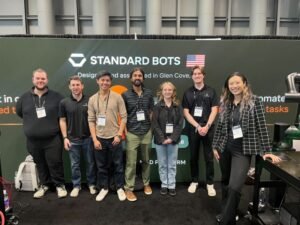
Standard Bots
A U.S.-based disruptor, Standard Bots is redefining robotics with its flagship RO1 cobot, which requires no-code programming and comes equipped with AI capabilities comparable to GPT-4. Designed and assembled in New York, RO1 offers built-in 3D vision, seamless OnRobot integration, and ships in just four weeks. With a focus on accessibility and ROI, the company caters to machine shops and small manufacturers looking for flexible automation without complex setup — making it one of the most user-friendly robotics platforms available.
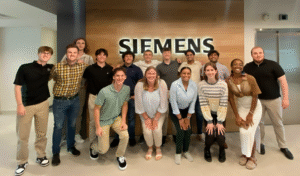 Siemens
Siemens
With operations in over 190 countries and a workforce exceeding 300,000, Siemens remains the world’s automation powerhouse. Its Xcelerator digital platform integrates software, hardware, and services into a unified ecosystem, accelerating industrial digital transformation. By running its own technologies across 270 factories, Siemens validates every solution in real-world conditions. Its strength lies in end-to-end digitalization, robust enterprise integration, and the SIMATIC automation system — ideal for large-scale manufacturers seeking proven reliability.
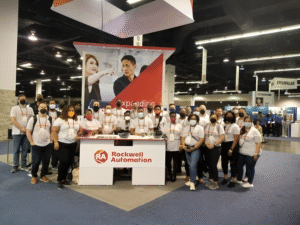 Rockwell Automation
Rockwell Automation
Rockwell Automation leads North America’s factory automation market with deep expertise in control systems and PLCs. Its FactoryTalk® platform integrates industrial control, analytics, and AI, allowing manufacturers to manage production lines through one cohesive system. With decades of experience across sectors like automotive and life sciences, Rockwell delivers robust, scalable automation designed for industrial resilience. Its tight integration of hardware and cloud-enabled analytics positions it as a trusted partner for smart factories.
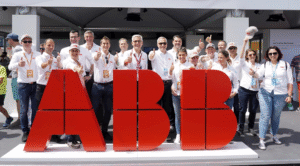 ABB
ABB
Operating across 100+ countries, ABB has installed over 500,000 robots worldwide. Its OmniCore system unifies motion control, sensing, and digital connectivity, reducing energy use and cycle time. ABB’s Ability™ digital suite empowers manufacturers with real-time insights and predictive analytics. With strong leadership in China and a rich robotics portfolio — from lightweight cobots to 800 kg payload machines — ABB continues to dominate high-speed, precision-driven industries like automotive, logistics, and electronics.
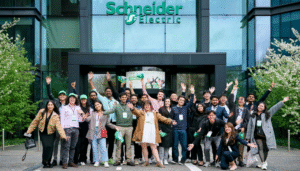 Schneider Electric
Schneider Electric
Schneider Electric merges energy management and automation into a single, sustainable framework. Its EcoStruxure platform enables factories to monitor and optimize both production and energy use simultaneously. Known for advancing sustainability and efficiency, Schneider serves industries from pharmaceuticals to heavy manufacturing. With its global service network and commitment to energy-smart automation, Schneider Electric is the go-to choice for companies prioritizing operational excellence and carbon reduction.
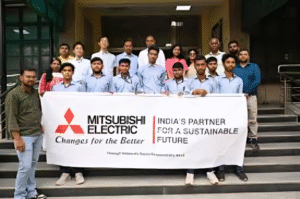 Mitsubishi Electric
Mitsubishi Electric
A leader in precision automation, Mitsubishi Electric excels through its MELFA robots, MELSEC PLCs, and e-F@ctory platform. These systems integrate robotics, sensors, and IT for seamless factory performance. With a legacy rooted in Japanese engineering, Mitsubishi focuses on reliability and accuracy across electronics and automotive manufacturing. Its dominance in Asia and expanding influence in Europe make it a cornerstone of modern factory automation.
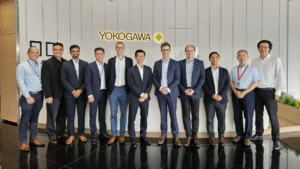 Yokogawa Electric
Yokogawa Electric
For over a century, Yokogawa Electric has specialized in process control and instrumentation, particularly for oil, gas, and energy industries. Its CENTUM distributed control system (DCS) remains one of the most trusted solutions for continuous production environments. Known for reliability and longevity, Yokogawa’s systems ensure stability in high-risk sectors where uptime is paramount. The company’s methodical approach makes it a preferred partner for industries valuing consistency over speed.
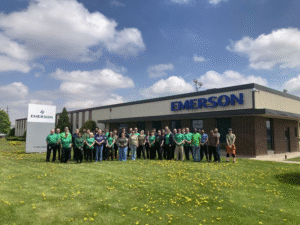 Emerson Electric
Emerson Electric
Emerson Electric combines process automation expertise with digital transformation through its DeltaV™ control system and Plantweb™ digital ecosystem. These platforms interconnect sensors, controllers, and analytics tools to deliver real-time insights and predictive maintenance. Serving critical sectors such as energy, water, and chemicals, Emerson enhances plant safety and efficiency. Its reputation for reliability and adaptability makes it a top choice for upgrading legacy process systems.
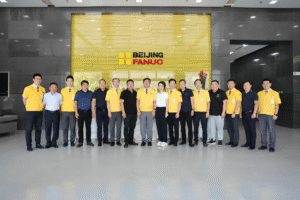 FANUC
FANUC
Japan-based FANUC is a global robotics and CNC powerhouse, with millions of installations across factories worldwide. Its ROBOT series and FIELD system bring AI-driven monitoring and predictive maintenance to large-scale operations. Renowned for consistency and uptime, FANUC’s robots dominate automotive and electronics manufacturing. With unmatched reliability and global service coverage, FANUC continues to set the gold standard for high-volume, precision automation.
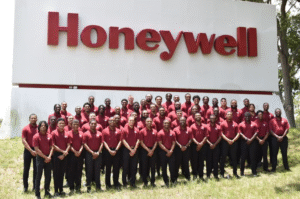 Honeywell International
Honeywell International
Honeywell International bridges industrial hardware with enterprise-grade software. Its Experion Process Knowledge System (PKS) integrates process control with data analytics, cybersecurity, and automation. Honeywell’s expertise spans aerospace, chemicals, and energy — making it one of the most versatile automation leaders. Its focus on industrial cybersecurity, connected systems, and AI-driven efficiency ensures future-ready operations across critical sectors worldwide.
Building the Factories of the Future
Choosing the right automation partner goes far beyond hardware — it determines your operational resilience and return on investment. Whether it’s Siemens’ scale, ABB’s robotics, or Standard Bots’ simplicity, each of these leaders contributes to a more connected, sustainable industrial landscape. As automation continues to evolve toward intelligent, self-optimizing systems, these companies are not just powering factories — they’re shaping the future of human-machine collaboration.




